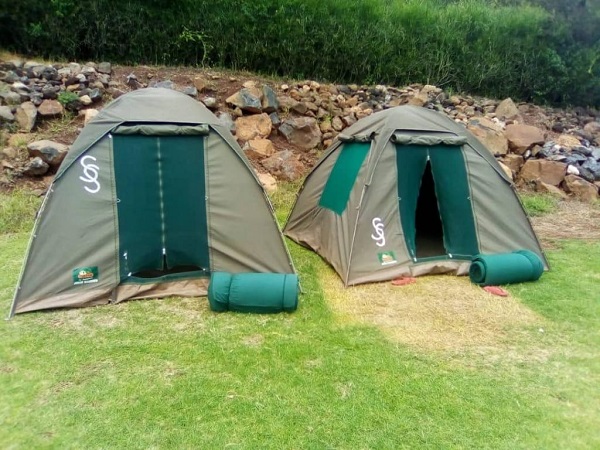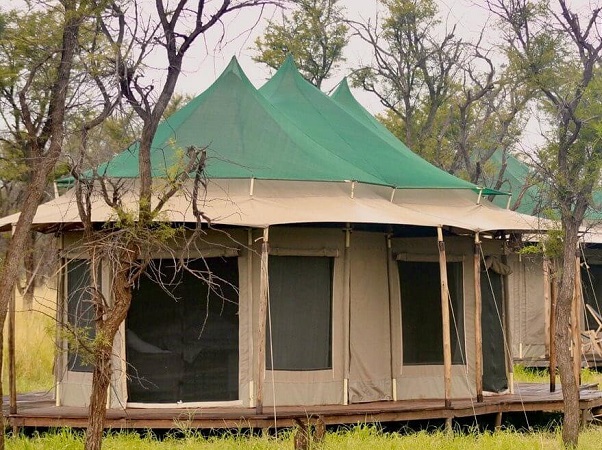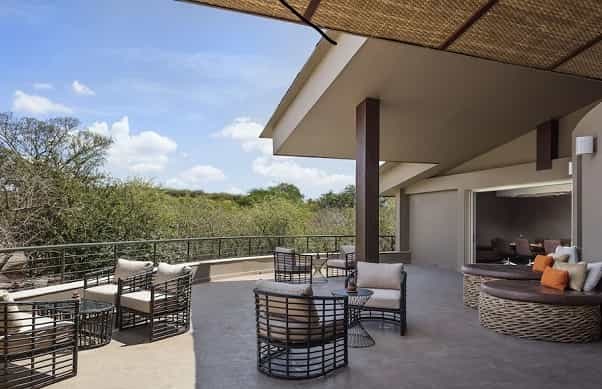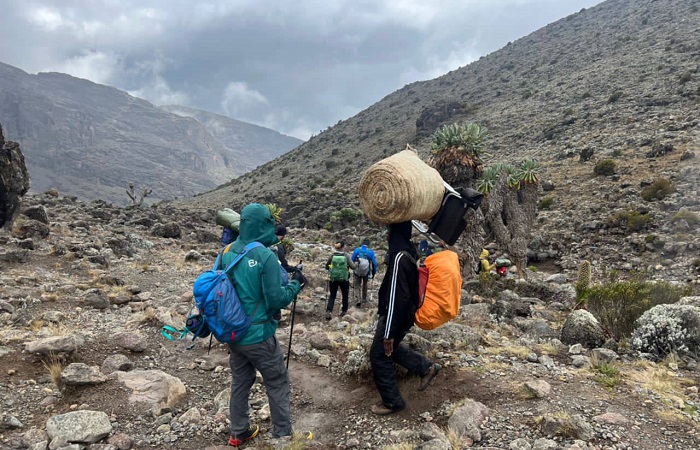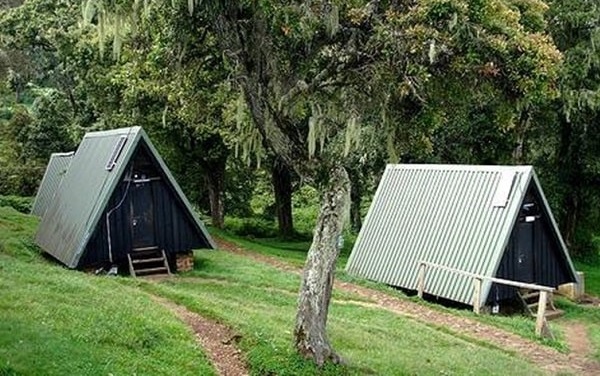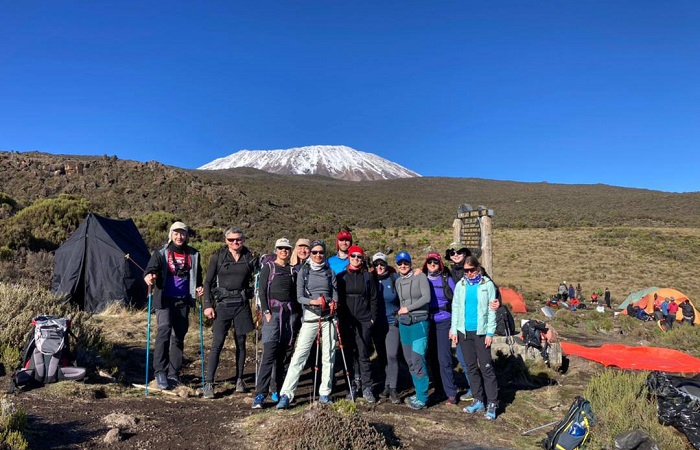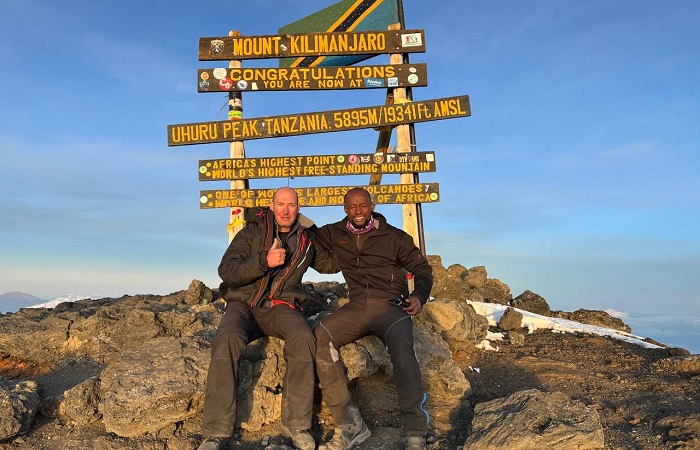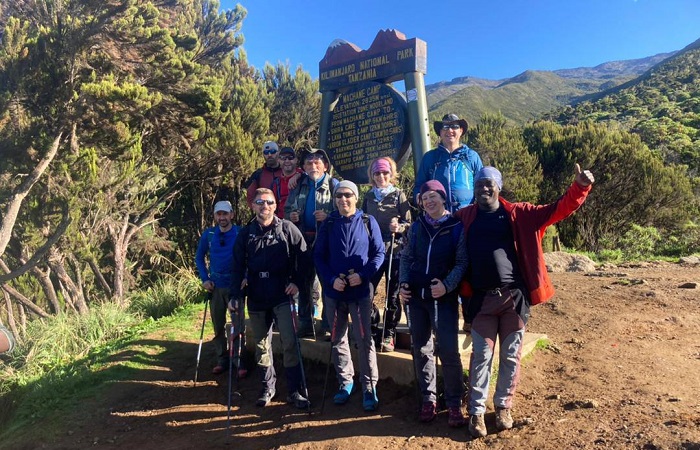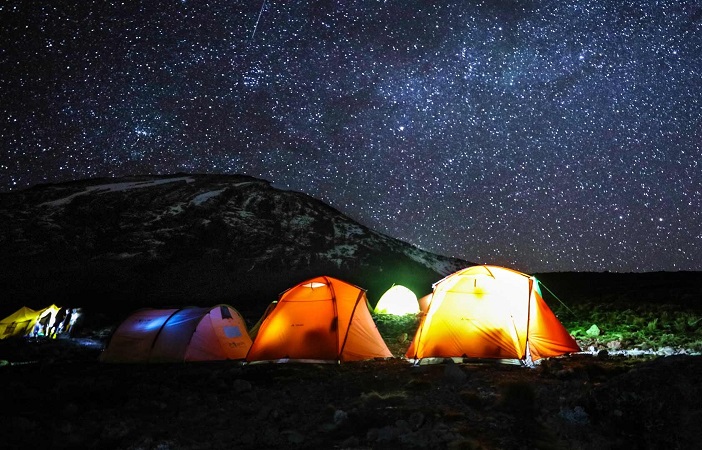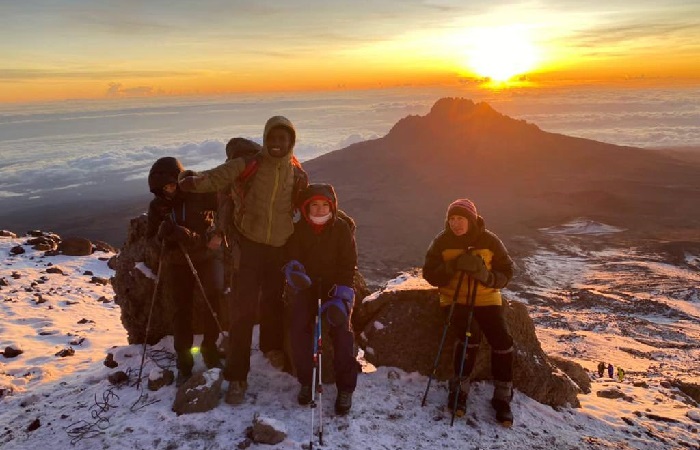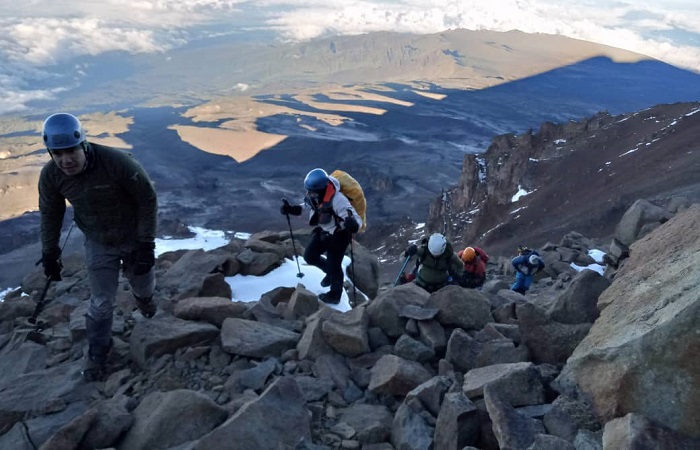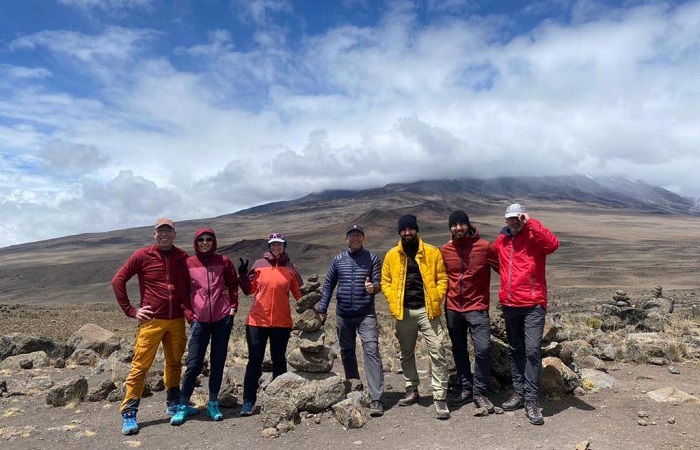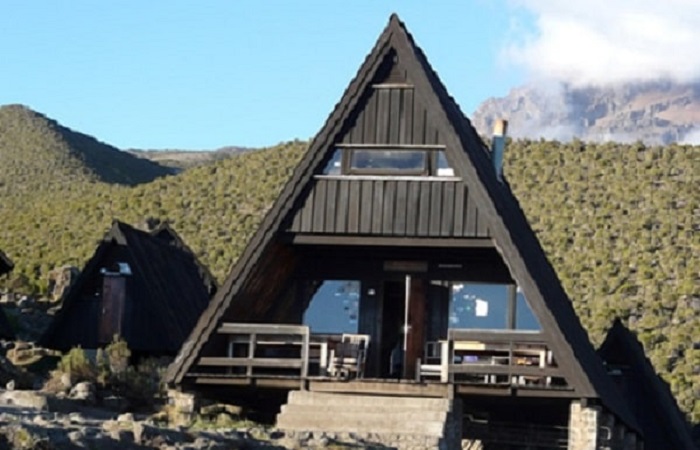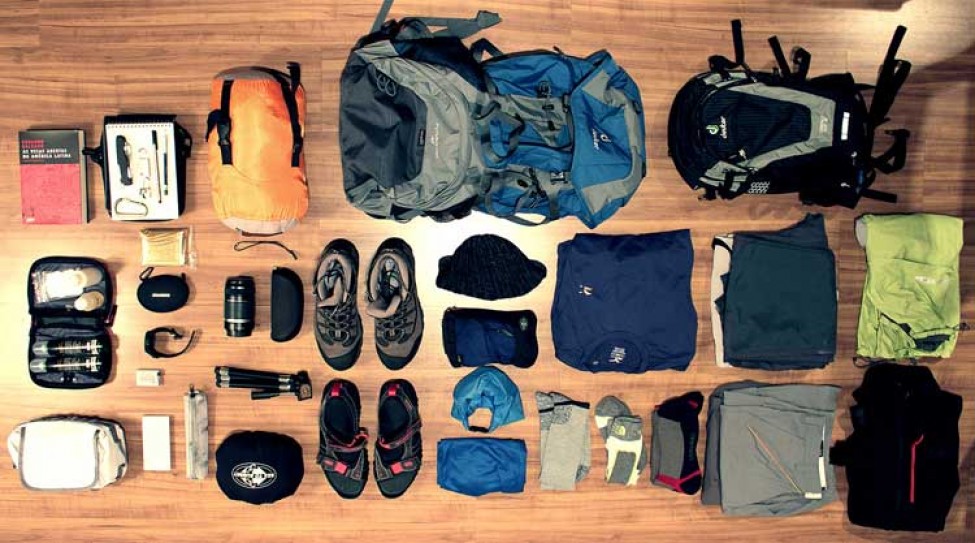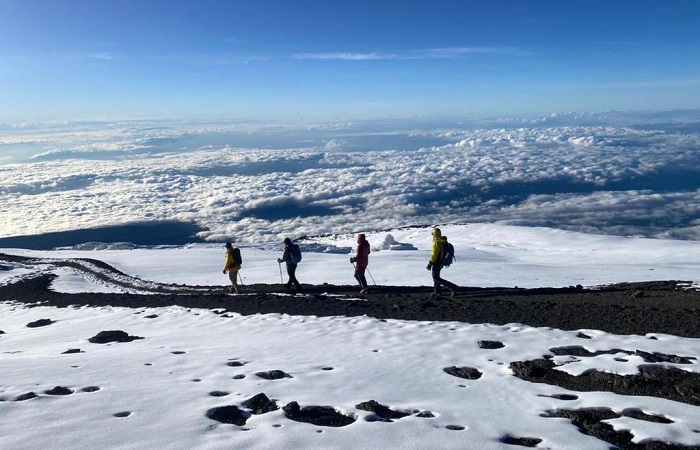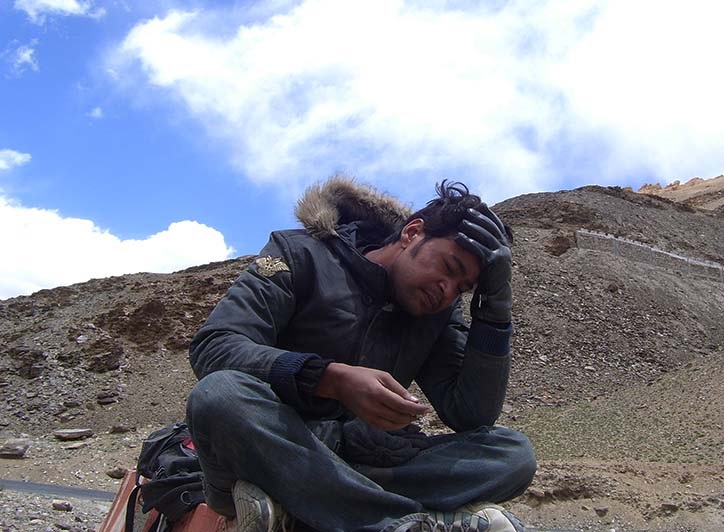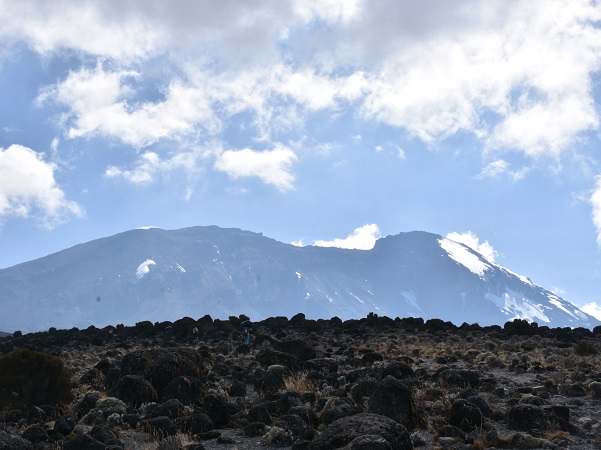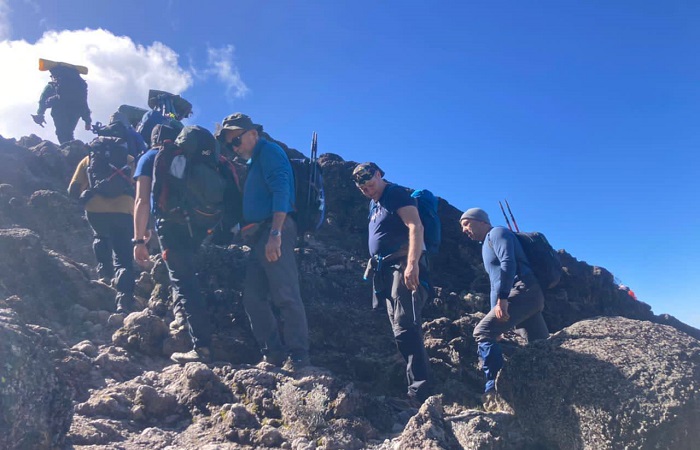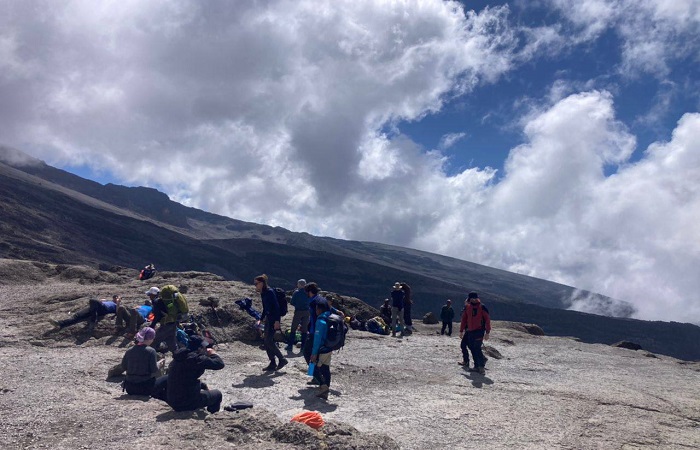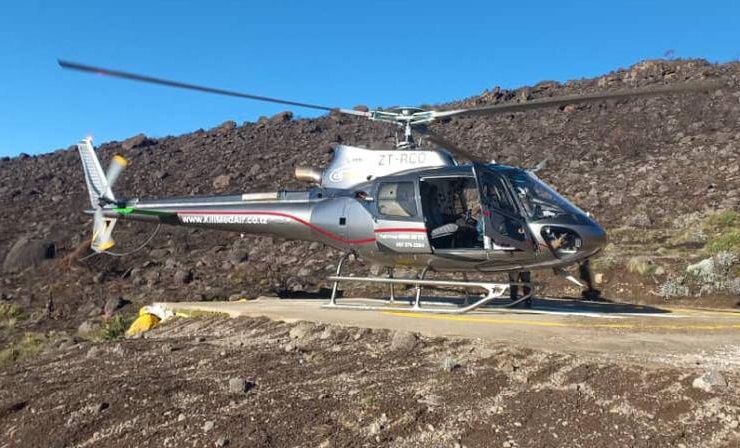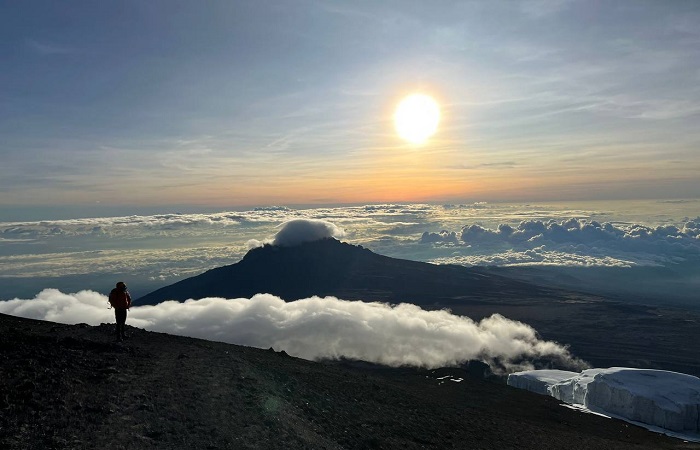Tour Overview
Rongai Route begins at the remote, northern side of Kilimanjaro near the Kenyan border. We hike through a true wilderness area towards the jagged Mawenzi Peak, then cross a barren desert saddle, before climbing up Kibos eastern crater wall. The Rongai route is a more gradual ascent, therefore preferred by those with little or no backpacking experience, but is equally enjoyable for even the most beautiful route in which you can see the wild animals.
ITINERARY
Day 1: Rongai Gate to Rongai Cave or Simba Cave
Elevation (ft): 6,398 ft to 9,300 ft
Distance: 7 km
Hiking Time: 3-4 hours
Habitat: Rain Forest
After breakfast, collecting the bags which supposed to go to Kilimanjaro and the rest can stay in the hotel. Then driving to Marangu Gate for permits, or drive straight to rongai gate we pass through the wooden village of NaleMoru, where the trailhead begins. The trail winds through corn and potato fields, and then climbs gently through the forest which is home to a variety of wildlife,
including the Black and White Colobus Monkey. Camp at Rongai Cave.
Day 2: Rongai Cave to 2nd Cave to Kikelewa Cave
Elevation (ft): 9,300 ft to 11,811 ft
Distance: 12 km
Hiking Time: 6-8 hours
Habitat: Health
Meals: Breakfast, Lunch & Dinner Included
After breakfast our guides will start the medical checkup to make sure that you are going to hace the safety trekking on the second day. The hike being with a steady incline and reach 2nd Cave while en-route to Kikelewa Cave. In which you will have your hot lunch in the 2nd Cave. Procced to Kikelewa cave where you will arrival at the late evening.
Views of Kibo and the Eastern ice fields on the crater rim begin to emerge.
Day 3: Kikelewa Cave to Mawenzi Tarn Hut
Elevation (ft): 11,811 ft to 14,160 ft
Distance: 5 km
Hiking Time: 3-4 hours
Habitat: Alpine Desert
The trekking today is short and steep, up a grassy slope. Views of the wilderness area are stunning. As we exit the heath zone and getting into the alpine desert zone, the landscape changes dramatically. Camp is situated beneath the jagged spires of Mawenzi.
The remainder of the day can be spent relaxing or exploring the area.
Day 4: Marwenzi Tarn to Kibo Hut
Elevation (ft): 14,160 ft to 15,430 ft
Distance: 8 km
Hiking Time: 5-6 hours
Habitat: Alpine Desert
After the early morning breakfast and the medical checkup you will leave the camp to Kibo hut. The trail climbs gradually across the rocky lunar landscape as we traverse the Saddle between Mawenzi and Kibo Peaks. Our campsite for the night sits at the bottom of the Kibo crater wall. The remainder of the day
is spent resting and preparing for the final ascent in the early morning, midnight.
Day 5: Kibo Hut to Uhuru peak to Horombo Hut
Elevation: 4700m/15,500ft to 5895m/19,340ft
Down to 3700m/12,200ft
Distance: 6km/4mi up / 15km/9mi down
Hiking Time: 6-8 hours up / 15km/9mi down
Habitat: Alpine Desert.
The trekking start early in the morning (midnight to 12am), start the climb to the summit on steep and heavy scree or snow up to Gilmans Point located on the crater rim (elev 5700m/18,700ft). Continuing, we now ascend to Uhuru Peak, which is the highest point in Africa. There are unbelievable views at every turn. You can take the pictures at the summit to show your friends and family. From here we descend, stopping for lunch and a rest at Kibo before continuing to Horormbo hut for the last camping.
The beginning of this climb is done in the dark and requires headlamps or flashlights. It will be very cold until you start descending, so you will need all of your warm layers. This is by far the most difficult part of the trek with many switchbacks. Going slowly (pole pole)and an optimistic attitude will get you there!
Day 6: Horombo Hut to Marangu Gate
Elevation: 3700m/12,200ft to 1700m/5500ft
Distance: 20km/12.5mi
Hiking Time: 4-5 hours
Habitat: Forest.
After breakfast, a steady descent takes us down through moorland to the Mandara Hut. Continue descending through lush forest path to the National Park gate at Marangu. At lower elevations, it can be wet and muddy. Gaiters and trekking poles will help. Shorts and t-shirts will probably be plenty to wear (keep rain gear and warmer clothing handy). This will be the last day of your trekking. At the gate you will get the Kilimanjaro certificate which you will be given by your guides at that time your team will be singing the Kilimanjaro songs plus the traditionally songs.
Trails of Kilimanjaro vehicle will meet you at Marangu gate to drive you back to your Hotel in Moshi for hot shower and rest.
RONGAI ROUTE FAQ
How hard is the Rongai route?
Rongai is a moderately difficult route, and is highly recommended, especially for those with less backpacking experience. Although the scenery is not as varied as the western routes, Rongai makes up for this by passing through true wilderness areas for nearly the entire way.
What is the success rate of the Rongai route?
What is the Rongai Route Route Summit Success Rate? The summit success rates for the Rongai Route are greatly increased with the longer trek option. Whilst there are no official statistics, the average success rate across all operators is 80% for the
7 days trek and a 65% success rate for the 6 days trek.
How long is the Rongai route?
The total distance is 72 kilometres with the longest day being summit day at 21 kms.
How many days do you need on the Rongai route?
The Rongai route can be completed over six to eight days. We always recommend the 7 days trek itinerary as we feel 6 days trek is too short for proper acclimatisation. Eight days is also good. The Rongai route approaches the mountain from the north.
Price Per Person
- GROUP SIZE (US-Dollar)
- 1 Person $ 1850
- 2-4 People $ 1770
- 5-7 People $ 1710
- 8-10 People $ 1650
- 10 ++People $ 1600
- Private transport to & from Kilimanjaro International Airport to your accommodations in Moshi.
- 2 nights of accommodation in Moshi.
- Transportation to & from the Kilimanjaro gate
- Park entry fees,
- Camping fees.
- 18% VAT on tour fees & services
- 4 Season mountain tents
- Double layered Sleeping Mats
- Team Kilimanjaro Rescue fees.
- Friendly and professional mountain guides, cook and porters.
- 3 hot meals daily while on the mountain.
- Fair wages for the mountain crew as approved by the Kilimanjaro National Park Authority (KINAPA), Kilimanjaro Association of Tour Operators (KIATO)
- Portable oxygen tanks & ox meter
- Enough treated & filtered drinking water throughout the trek.
- Hot water for washing.
- Government taxes
- Emergency first-aid kit.
- Lunches, dinners and drinks at your hotel before and after climb.
- Travel insurance.
- Flights.
- Laundry (Available at hotel).
- Personal items and toiletries.
- Tips for guides, porters and cook (this is a guide to tipping on the mountain.


